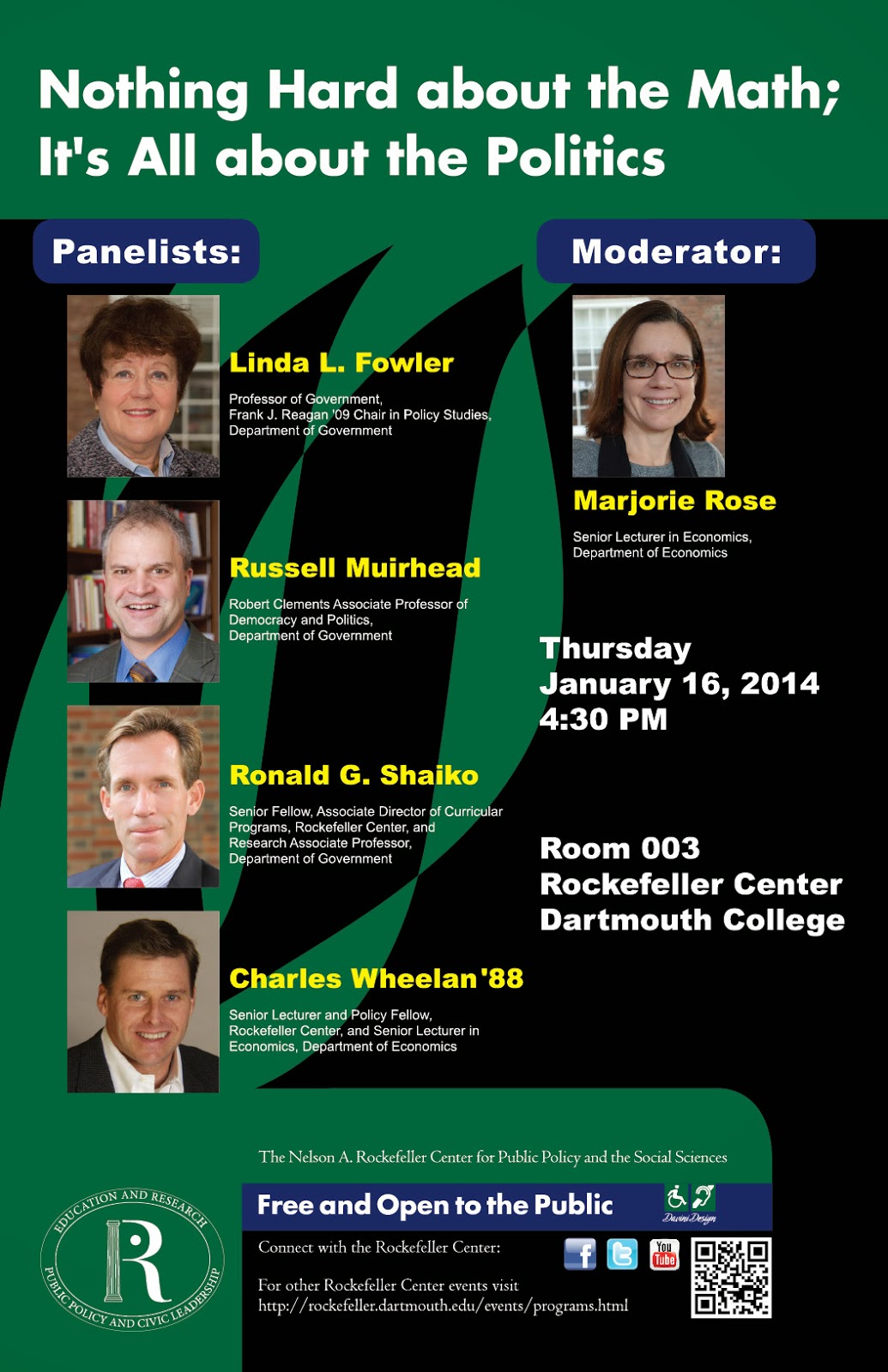- Public Policy
- Leadership
- Funding
- News & Events
- About the Center
Back to Top Nav
Back to Top Nav
Back to Top Nav
Back to Top Nav

As part of MLDP, we encourage student participants to attend other Rockefeller Center programs in order to enrich their Dartmouth experience. Read a student account of a Rockefeller Center program, and for more information about MLDP, click here.
An overflow crowd filled the bottom floor of the Rockefeller Center on Thursday, January 16th, to hear some of Dartmouth’s most insightful scholars give their views on the contentious debate over the Federal Budget. Prof. Charlie Wheelan led the panel by noting the “near consensus” among scholars that the current level of spending by the Federal Government projects was “very unhealthy”. If federal spending patterns remain unadjusted, consequences include grossly inflating the currency, forcing cuts to programs the nation wants to keep, and causing international ramifications by using up an “inordinate” amount of global savings to pay future debts. Both Wheelan and other panelists agreed that this problem is “not about the math,” arguing that the government has a “good idea” about what policy changes would alter the fiscal outlook. Instead, as Prof. Russell Muirhead articulated, the “deeper problem” has been the demand of the national polity for “lower taxes and more services” since the early 1980s. This has stifled reform and enabled U.S national representatives to stall and legislate irresponsibly in approaching the budget problem.
Both Prof. Ron Shaiko and Prof. Linda Fowler analyzed key areas for reform. Shaiko emphasized that the primary deficit driver is the growth of healthcare spending, which is outpacing inflation and productivity. He argued that while more and more healthcare costs are being paid by the Federal Government (24% in 1970 vs. 43% in 2012), the effectiveness of the system has not justified this increase. Fowler focused on the controversies surrounding tax expenditures. She argued that high-income individuals benefit most greatly from the current tax code through deductions that are not as visible to the public, and insinuated that they should be made to do more in lowering the deficit.
While the opinions of the panelists varied regarding the best antidote to the nation’s fiscal woes, the discussion succeeded in underscoring the gravity and impending consequences of this problem. Only Fowler sounded hopeful about the government’s capacity to compromise on the issue, in order to avoid the consequences detailed by Wheelan at the outset of the lecture. However, the panel made clear that if policymakers don’t meet this challenge through compromise, they’ll soon be forced to do so by necessity.
--Written by Gilbert Whalen ‘14, MLDP Winter 2014 Participant